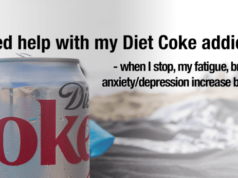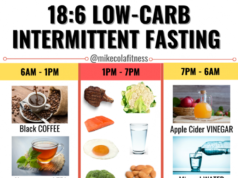Why are diet sodas bad for you? It’s a question that’s bubbled up like a forgotten can of soda in the back of the fridge, begging to be addressed. While they promise a guilt-free sugar rush, these artificial sweeteners might be more like a Trojan horse, sneaking in sneaky health hazards.
From messing with your gut to potentially messing with your metabolism, the world of diet sodas is more complicated than a sugar-free recipe.
This exploration delves into the murky depths of artificial sweeteners, their potential impact on blood sugar and insulin, and the surprising link to weight gain and cardiovascular health. We’ll also uncover the unexpected connections to bone health, gut inflammation, and even cognitive function.
So, grab your water bottle and join us on this refreshing journey to understand the real cost of that “diet” soda.
Artificial Sweeteners and Their Impact: Why Are Diet Sodas Bad For You
Artificial sweeteners are sugar substitutes that provide sweetness without calories. They are commonly used in diet sodas to satisfy sweet cravings while reducing sugar intake. However, recent research has raised concerns about the potential health effects of these artificial sweeteners.
Metabolic Changes
Artificial sweeteners may disrupt the body’s natural metabolic processes. Studies have shown that consuming artificial sweeteners can alter gut bacteria composition, potentially leading to changes in glucose metabolism and insulin sensitivity. These changes could increase the risk of developing metabolic disorders like type 2 diabetes and obesity.
Diet sodas are like those friends who promise to help you lose weight but secretly sabotage your efforts. They’re loaded with artificial sweeteners that can mess with your gut bacteria and actually make you crave more sugary treats. Instead of reaching for that zero-calorie concoction, focus on a heart-healthy diet like the one outlined on this website: best diet to lower cholesterol.
Lowering your cholesterol is a much better way to improve your health than relying on a fizzy beverage that’s basically a chemical experiment in a can. Just remember, if you want to truly take care of your body, sometimes the best thing to do is ditch the diet soda and reach for a glass of water instead.
Gut Microbiome Disruption
The gut microbiome plays a crucial role in digestion, immunity, and overall health. Artificial sweeteners can disrupt the balance of gut bacteria, leading to an imbalance in the microbiome. This disruption has been linked to various health issues, including inflammation, digestive problems, and even mood disorders.
Cravings
Artificial sweeteners may paradoxically increase cravings for sweet foods. The brain’s reward system responds to sweetness, and artificial sweeteners can stimulate this system without providing the calories associated with sugar. This can lead to a vicious cycle of increased cravings and potentially excessive calorie intake.
Effects of Different Artificial Sweeteners
Different artificial sweeteners have varying effects on the body. For example, aspartame, a commonly used sweetener, has been linked to headaches and other neurological symptoms in some individuals. Sucralose, another popular sweetener, has been shown to have minimal effects on blood sugar levels but may disrupt the gut microbiome.
Artificial sweeteners are not all created equal, and their potential health effects vary depending on the specific compound.
Impact on Blood Sugar and Insulin
You might think, “Okay, so diet soda has zero calories, right? That means it can’t affect my blood sugar, right?” Well, it’s not that simple. While diet soda doesn’t contain sugar, the artificial sweeteners it uses can still have some surprising effects on your blood sugar and insulin levels.
The Effect of Diet Sodas on Blood Sugar
The artificial sweeteners in diet sodas don’t raise blood sugar levels directly like sugar does. However, there’s a growing body of research suggesting that regular diet soda consumption might disrupt the body’s natural blood sugar regulation.
Diet sodas might seem like a guilt-free treat, but they’re more like a sneaky sugar-coated lie. They can mess with your gut bacteria, potentially leading to weight gain, and even increase your risk of diabetes. If you’re looking to manage your blood sugar levels, check out this resource on the best diet for diabetics.
You’ll find that a balanced diet with plenty of whole foods is the key to keeping your sweet tooth satisfied without sacrificing your health. And remember, a healthy diet is far more rewarding than a sugary mirage that leaves you craving more.
Artificial Sweeteners and Insulin Sensitivity
Insulin is a hormone that helps your body use glucose (sugar) for energy. When you drink regular soda, your body releases insulin to process the sugar. However, artificial sweeteners can trick your body into thinking it’s getting sugar, leading to a release of insulin even though there’s no sugar to process.
This can lead to insulin resistance, where your body doesn’t respond to insulin as effectively.
“Over time, this repeated insulin release without a corresponding glucose spike could lead to insulin resistance, a precursor to type 2 diabetes.”
Diet Soda Consumption and Type 2 Diabetes
Numerous studies have explored the link between diet soda consumption and type 2 diabetes. While some studies have found no association, others have reported a correlation between regular diet soda consumption and an increased risk of developing type 2 diabetes.
“A large-scale study published in the American Journal of Clinical Nutrition found that people who drank two or more diet sodas per day had a 26% higher risk of developing type 2 diabetes over a 10-year period compared to those who didn’t drink diet soda.”
Potential for Weight Gain and Obesity
Diet sodas, despite their zero-calorie claim, have been linked to weight gain and obesity. This might seem counterintuitive, as they contain no calories. However, the complex interplay between diet sodas and our bodies suggests a more nuanced picture.
The Role of Diet Sodas in Satiety and Appetite Regulation
Diet sodas might interfere with our natural satiety signals, leading to increased appetite and ultimately, weight gain. Our bodies are designed to respond to food and drinks, triggering a cascade of hormonal and physiological responses. When we consume sugary drinks, our bodies release insulin, a hormone that helps regulate blood sugar levels and signals satiety.
However, diet sodas, with their artificial sweeteners, bypass this natural process. Artificial sweeteners do not stimulate insulin release, leaving our bodies in a state of “false satiety.” This can lead to an increased desire for food, as our bodies are not receiving the appropriate signals to feel full.
Studies Investigating the Relationship Between Diet Soda Consumption and Weight Gain or Obesity
Numerous studies have explored the link between diet soda consumption and weight gain or obesity. A 2015 study published in the American Journal of Clinical Nutrition found that individuals who consumed diet soda regularly were more likely to experience weight gain over a 10-year period.
Another study, published in the journal Obesity in 2016, found a correlation between diet soda consumption and an increased risk of developing metabolic syndrome, a cluster of conditions that increases the risk of heart disease, stroke, and type 2 diabetes.
Diet sodas might seem like a guilt-free treat, but they can be sneaky little devils. They mess with your gut bacteria, trick your body into craving more sugary treats, and even mess with your metabolism. And don’t even get me started on the artificial sweeteners! If you’re looking for a more balanced approach to your diet, check out these nutrition facts for some healthy alternatives.
Your body (and your taste buds) will thank you for it.
Potential Mechanisms by Which Diet Sodas Might Contribute to Weight Gain
The mechanisms by which diet sodas might contribute to weight gain are complex and not fully understood. However, several theories have been proposed:
- Disruption of Gut Microbiota:Studies suggest that artificial sweeteners might disrupt the balance of gut bacteria, leading to changes in metabolism and an increased risk of weight gain.
- Increased Cravings:The artificial sweeteners in diet sodas might trigger a “sweetness-seeking” behavior, leading to increased cravings for sugary foods and drinks.
- Alteration of Appetite Hormones:Some studies suggest that artificial sweeteners might interfere with the production or action of hormones that regulate appetite, such as leptin and ghrelin.
Impact on Cardiovascular Health

While diet sodas are marketed as a guilt-free alternative to sugary drinks, mounting evidence suggests they may not be as harmless as they seem, particularly when it comes to our heart health. Let’s delve into the potential link between diet soda consumption and cardiovascular disease.
Artificial Sweeteners and Blood Pressure
Artificial sweeteners, the primary ingredient in diet sodas, have been implicated in affecting blood pressure. Studies have shown that regular consumption of artificial sweeteners may lead to an increase in blood pressure, a key risk factor for heart disease.
One study published in the journal Hypertension found that individuals who consumed more than four servings of diet soda per day had a significantly higher risk of developing high blood pressure compared to those who consumed less or none.
Artificial Sweeteners and Cholesterol Levels
The impact of artificial sweeteners on cholesterol levels is another area of concern. Research suggests that certain artificial sweeteners may disrupt the balance of good and bad cholesterol in the body, potentially increasing the risk of heart disease.
A study published in the Journal of the American Heart Association found that individuals who consumed diet sodas regularly had higher levels of low-density lipoprotein (LDL) cholesterol, the “bad” cholesterol, compared to those who did not consume diet sodas.
Diet Sodas and Stroke Risk
While the link between diet sodas and stroke risk is still under investigation, some studies have suggested a potential association. One study, published in the journal Stroke, found that individuals who consumed diet sodas daily had a higher risk of stroke compared to those who did not consume diet sodas.
The study found that the association between diet soda consumption and stroke risk was independent of other known risk factors for stroke, such as age, smoking, and high blood pressure.
Potential for Other Health Issues
Beyond its impact on weight, blood sugar, and cardiovascular health, diet soda consumption has been linked to several other potential health concerns. While research is ongoing, emerging evidence suggests that diet soda might not be as benign as once thought.
Diet Soda and Bone Health, Why are diet sodas bad for you
Consuming diet soda has been associated with a reduced bone mineral density, which could increase the risk of fractures. Studies have shown that individuals who drink diet soda regularly may have lower bone density compared to those who don’t.
One study published in the American Journal of Clinical Nutrition found that women who consumed more than two diet sodas per day had a 3% lower bone mineral density than women who didn’t drink diet soda.
The exact mechanism behind this association is not fully understood. However, some theories suggest that artificial sweeteners may interfere with calcium absorption, leading to weaker bones.
Artificial Sweeteners and Gut Health
Artificial sweeteners, often found in diet sodas, have been linked to changes in the gut microbiome, the complex community of bacteria residing in our intestines. A healthy gut microbiome plays a crucial role in digestion, immunity, and overall health.
Studies have shown that artificial sweeteners can alter the composition and function of the gut microbiome, potentially leading to increased inflammation and other health issues.
This disruption of the gut microbiome could have implications for conditions like irritable bowel syndrome (IBS), inflammatory bowel disease (IBD), and even obesity.
Diet Soda and Cognitive Function
Research on the link between diet soda consumption and cognitive function is still in its early stages. However, some studies have shown a potential association between diet soda and cognitive decline.
One study published in the journal Stroke found that people who drank diet soda regularly had a higher risk of stroke and dementia.
Further research is needed to establish a definitive link between diet soda and cognitive decline. However, these findings suggest that regular diet soda consumption might not be conducive to brain health.
Ending Remarks
The truth about diet sodas is like a fizzy, sugary mystery. While they might seem like a healthy choice, the science is starting to reveal a complex web of potential consequences. From disrupting your gut microbiome to potentially affecting your metabolism and weight, the long-term effects of artificial sweeteners are still being investigated.
So, while the jury is still out, perhaps it’s time to reconsider your soda choices and opt for a more natural, wholesome alternative. After all, a healthy body is a happy body, and that’s something to truly celebrate!
User Queries
Are diet sodas better for you than regular sodas?
While diet sodas contain fewer calories than regular sodas, the potential health risks associated with artificial sweeteners are still being studied. The jury is still out on whether diet sodas are truly a healthier option.
Can diet sodas cause tooth decay?
Diet sodas are generally considered to be less likely to cause tooth decay than regular sodas due to the lack of sugar. However, they can still contribute to tooth erosion due to their acidity.
Are all artificial sweeteners the same?
No, different artificial sweeteners have different chemical structures and may have varying effects on the body. Some studies suggest that certain sweeteners may be more likely to disrupt gut bacteria or impact blood sugar levels than others.
























